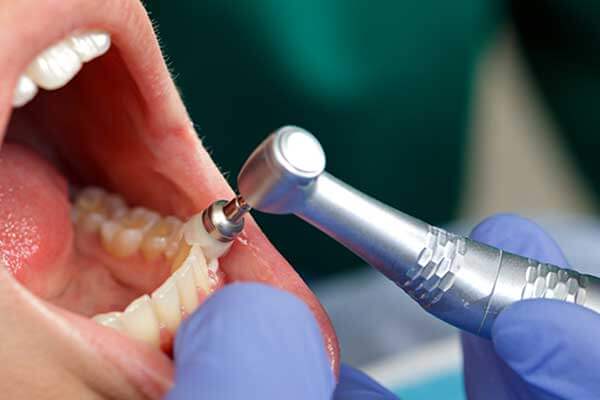Oral Prophylaxis
A procedure done for the teeth cleaning. It removes tartar and plaque build-up from the surfaces of the teeth as well as those hidden in between and under the gums. The dentist uses a scaler, a type of hand instrument, to remove the plaque and tartar.
Nowadays, ultrasonic – powered scalers are more commonly used for their efficiency. Ultrasonic scalers work by producing tickling vibrations to gently remove the thicker and larger tartar deposits while spraying a cooling mist of water to wash away the blood and debris from the cleaned area. Coffee and cigarette stains can also be removed during oral prohylaxis. After cleaning all the teeth, the dentist will then polish them using a poloshing paste and a small brush attached to a low-rotating hand piece which will be ran throughout and the teeth to make them smooth and shiny.

Dental Services
C-Dental services that are considered prophylactic include a variety of options.
The following can increase your risk of cavities:
- Dental exams
- X-rays
- Cleaning
- Scaling or root planing
- Flossing and polishing
- Fluoride treatments or sealants
Why is dental prophylaxis required?
Although your home dental care regime might be effective, there are many dental problems that are hard to spot or even prevent at home. Many dental issues do not cause pain or show any obvious signs. During your dental prophylaxis appointment, we can diagnose these problems with a thorough examination. We can look for decay and cavities and provide treatments that will help you avoid painful, costly restorations down the road. We will also remove the build-up of tartar and plaque that can lead to decay and gum disease.
What are the benefits of cleanings?
There are many benefits to cleanings including:
- Plaque removal
- Tartar removal
- Whiter, shinier teeth
- Fresher breath
- A preventative approach to managing dental and oral health
- Stain removal
Has several benefits for Fluoride the teeth:
- It helps the body better use minerals, such as calcium and phosphate. The teeth reabsorb these minerals to repair weak tooth enamel.
- It joins into the tooth structure when teeth are developing to strengthen the enamel of the teeth, making them less vulnerable to bacteria and cavities for life.
- It slows or even reverses the development of cavities by harming bacteria that cause cavities.
When taken together, these benefits may help to:
By preventing cavities and slowing the growth of bacteria, fluoride treatment may also:
- Prevent gum disease
- Reduce tooth pain
- Prevent the premature loss of teeth

